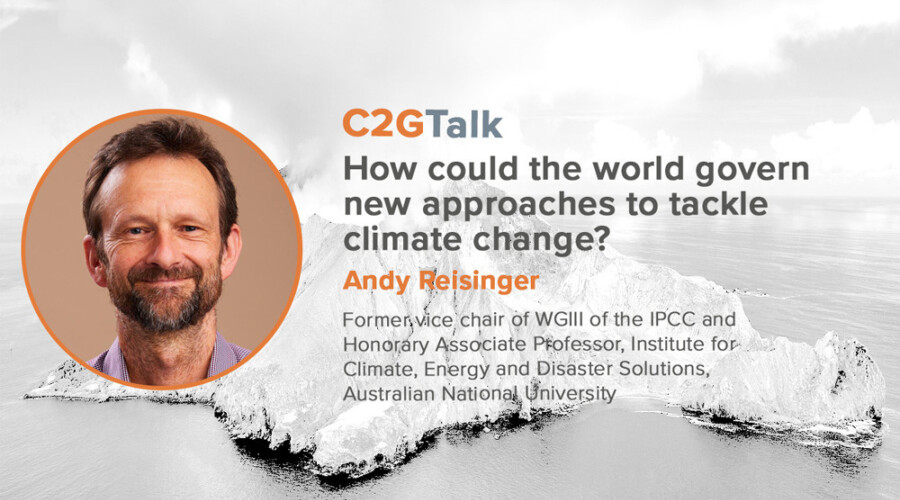Selon le GIEC, l'élimination du dioxyde de carbone (CDR) à grande échelle est nécessaire dans toutes ses voies pour limiter le réchauffement de la planète à 1,5°C. Dans ce "C2GDiscuss", Janos Pasztor, directeur exécutif de C2G, s'entretient avec trois experts mondiaux sur le rôle que la CDR pourrait jouer pour parvenir à un bilan net négatif après un bilan net nul. Que faut-il faire maintenant pour que le CDR soit opérationnel au moment où nous en aurons besoin ? Quel rôle les secteurs public et privé pourraient-ils jouer pour développer la CDR nécessaire ?
This discussion was recorded on September 8, 2021, and is available with interpretation into 中文, Español, and Français.
Current international responses to climate change continue to place the world on a trajectory beyond 1.5°C global warming, with impacts posing severe risks to natural and human systems. Discussions on carbon dioxide removal (CDR) globally has grown since the publication of the IPCC special report on global warming of 1.5°C, which reaffirms that large-scale CDR is required in all of its pathways to limit global warming to 1.5°C, with limited or no overshoot to achieve net-zero mid-century and global net negative emissions thereafter, until the end of the century. By removing between 100 to 1000 billion tonnes of CO2 depending on the speed of emissions reduction in respective pathways.
CDR methods vary and include the use of nature-based approaches, such as afforestation and enhancing wetlands, or engineering-based approaches to directly capture carbon dioxide. At scale, they all present potential benefits and risks of negative side-effects and pose significant governance challenges as many governance gaps exist. Most CDR approaches are currently theoretical and far from being ready to deploy at the speed or scale necessary to prevent overshooting the Paris Agreement temperature goal of 1.5–2°C.
Discussions around CDR governance, in particular on and around nature-based approaches to CDR as well as direct air carbon capture and storage, have more recently gained growing interest in light of the wave of net-zero commitments or pledges by governments, companies and other actors over the last two years.
However, important knowledge gaps persist around the role CDR could play in achieving net negative emissions after net-zero to deliver the Paris Agreement's goal. This C2GDiscuss features three global experts sharing their views on the role that CDR could play to achieve net negative after net zero. Some of the topics explored in this discussion are: what needs to be done now to have CDR functioning by the time we need it; how can CDR's full potential be realized as a climate response while making sure that the co-benefits are maximized, and trade-offs minimized in relation to the Sustainable Development Goals (SDGs); what role could the public and private sector play to scale up the required CDR and is there a role for other non-state actors.
Understanding these issues is crucial and urgent for meaningful societal deliberations and decisions today.
Jan Minx is head of the Mercator Research Institute on Global Commons and Climate Change working group Applied Sustainability Science.
James Mwangi is the executive director of the Dalberg Group, and a partner with Dalberg Advisors.
Shuchi Talati is chief of staff for the Office of Fossil Energy and Carbon Management (FECM) at the U.S. Department of Energy.
Janos Pasztor (moderator) is executive director of C2G and a senior fellow at Carnegie Council.
For more, please go to C2G's website.




